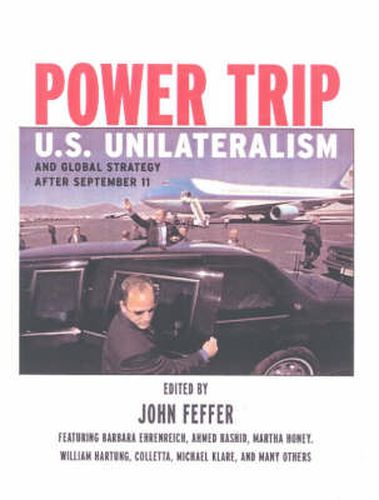Readings Newsletter
Become a Readings Member to make your shopping experience even easier.
Sign in or sign up for free!
You’re not far away from qualifying for FREE standard shipping within Australia
You’ve qualified for FREE standard shipping within Australia
The cart is loading…






In the aftermath of September 11, the U.S. has launched an ambitious project to consolidate and extend its global control. The WTC attacks provided the Bush administration an unprecedented opportunity to achieve these goals. They can now claim a new moral urgency, greater resources particularly in the military realm, more popular support for the costs of intervention overseas, and greater public acceptance of the leadership’s aims and methods. The war on terrorism represents a long-term effort to maintain a unipolar world in which allies are subordinate, strategic competitors are blocked, and threats to U.S. interests are extinguished. In the first book-length critique of this fundamental shift in policy, well-known writers and thinkers such as Barbara Ehrenreich, Dan Plesch, and Ahmed Rashid analyse the motives and methods of the new Bush administration, the Axis of Evil targets of the war on terrorism, and the domestic impact of post-September 11 policies. Critical response to the new U.S. policies has come from many different sources: U.S. allies, strategic competitors such as Russia and China, the countries targeted in the war against terrorism, and dissenting public voices throughout the world, including the United States. This book will analyse the probable consequences of this response as well as the appropriate alternatives to current U.S. policies.
$9.00 standard shipping within Australia
FREE standard shipping within Australia for orders over $100.00
Express & International shipping calculated at checkout
Stock availability can be subject to change without notice. We recommend calling the shop or contacting our online team to check availability of low stock items. Please see our Shopping Online page for more details.
In the aftermath of September 11, the U.S. has launched an ambitious project to consolidate and extend its global control. The WTC attacks provided the Bush administration an unprecedented opportunity to achieve these goals. They can now claim a new moral urgency, greater resources particularly in the military realm, more popular support for the costs of intervention overseas, and greater public acceptance of the leadership’s aims and methods. The war on terrorism represents a long-term effort to maintain a unipolar world in which allies are subordinate, strategic competitors are blocked, and threats to U.S. interests are extinguished. In the first book-length critique of this fundamental shift in policy, well-known writers and thinkers such as Barbara Ehrenreich, Dan Plesch, and Ahmed Rashid analyse the motives and methods of the new Bush administration, the Axis of Evil targets of the war on terrorism, and the domestic impact of post-September 11 policies. Critical response to the new U.S. policies has come from many different sources: U.S. allies, strategic competitors such as Russia and China, the countries targeted in the war against terrorism, and dissenting public voices throughout the world, including the United States. This book will analyse the probable consequences of this response as well as the appropriate alternatives to current U.S. policies.